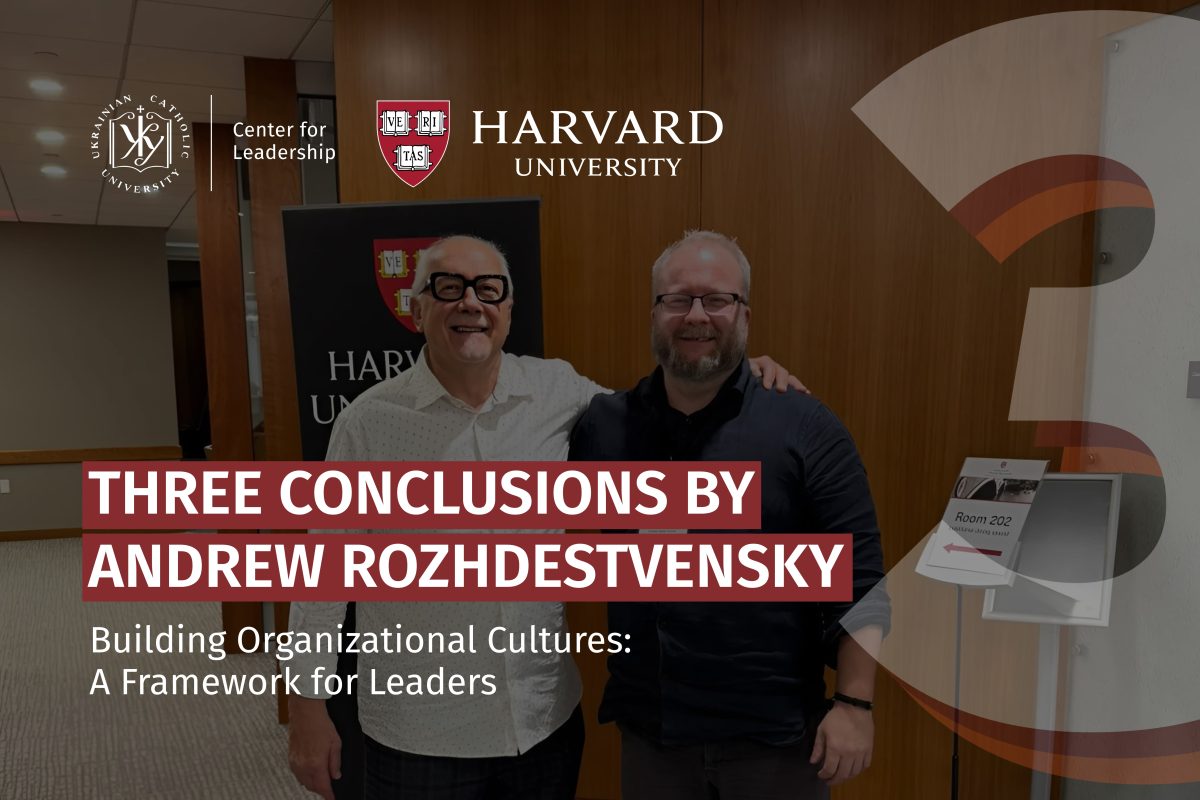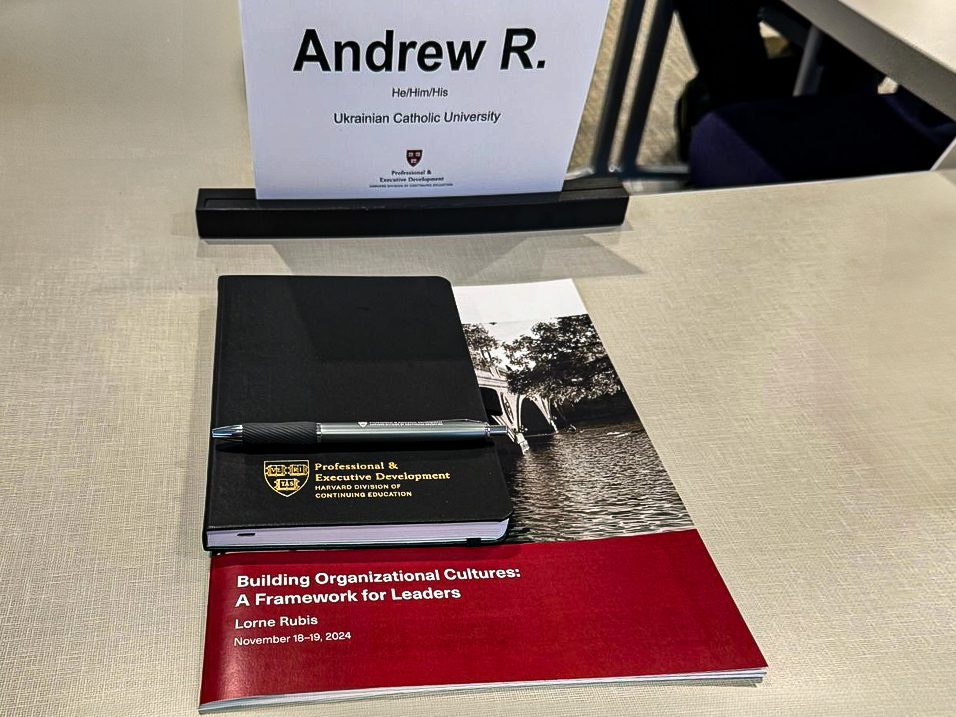
Organizational Culture: New Tools for Leaders
November 18-19, Andrew Rozhdestvensky, Executive Director of the UCU Leadership Center, participated in the program “Building Organizational Culture: Foundations for Leaders” at Harvard.
“Why do some cultures thrive while others weaken?” — this was the central question participants sought to answer through collaborative research, discussions, and reflections. Leaders analyzed their approaches and explored new tools to create more effective solutions. They worked on activating the 10 elements of culture, studied the continuum of organizational cultures — from terrible to exceptional, built frameworks, and developed plans to turn insights into actions.
The program instructor was Lorne Rubis. With over 40 years of leadership experience, Lorne has spearheaded cultural and business transformations across various U.S. companies, including serving as a leader in a Fortune 50 company and as Vice President of Operations with Los Angeles Kings. He is also the co-founder of Belongify.

Lorne Rubis’s Comment:
“It is incredibly valuable that Andriy joined our program. I deeply appreciate all the work you do as a university and everything you, as Ukrainians, are doing today. It is part of me, too — my grandparents were Ukrainian. I’m honored to contribute in a small way to developing your organizational culture through Andrew.”
Program Takeaways Shared by Andrew Rozhdestvensky:
- Takeaway 1: Why invest in organizational culture?
Organizational culture impacts various HR metrics, such as employee engagement and commitment. Investing in its development provides:
▫️ Value — people are motivated to create added value;
▫️ Risk mitigation;
▫️ Accelerated adaptation to challenges.
- Takeaway 2: Removing excess is sometimes the most effective solution.
We often strive to add, scale, or change things, but sometimes it’s better to eliminate unnecessary elements:
▫️ For instance, a 9-to-5 schedule. If your team is responsible, flexible hours might work better.
▫️ Similarly, office-only work — is it always necessary?
▫️ Avoid excessive bureaucracy: unnecessary forms and documents hinder efficiency.
- Takeaway 3: Organizational culture is now public.
Everything is accessible online, and even a single employee review matters. Soon, company culture might become a key consideration for investors in their decision-making process.
